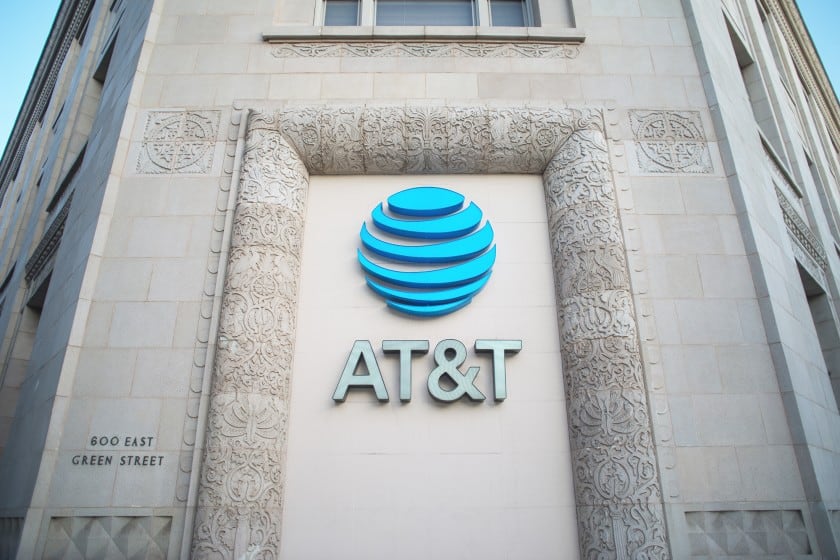
AT&T Inc. (T) CEO John Stankey continues to reshape the communications giant and its balance sheet with the merger of Warner Media LLC with John Malone media property Discovery Inc. (DISCA), announced May 17.
The Dallas telecom and media group will receive $43 billion in cash, debt and offloaded WarnerMedia debt through the spinoff and merger. The move will allow AT&T to divert capital to 5G wireless services and reduce debt, but it also marks a break with the strategy of Stankey’s predecessor, Randall Stephenson, to acquire major media properties.
Stankey told investors during a May 17 call that the deal, which will leave AT&T shareholders with 71% of the merged companies, will “unlock value,” which can be a euphemism for unwinding an unsuccessful merger.
The new investor base will include such prominent backers as Discovery shareholder John Malone and AT&T stakeholder Elliott Management Corp. Paul Singer’s Elliott Management on Monday said it was pleased with the move, noting that with Stankey as CEO, “AT&T has now executed on its promise to streamline operations and re-focus on its core business.”
Discovery president and CEO David Zaslav, who will run the combined company, touted the portfolio of the merged companies. “It’s not good enough to have content that people love,” Zaslav said during the May 17 call. “You’ve got to have content that people love so much that they would run home and pay for it before they pay for dinner with a roof over their head.”
AT&T acquired Time Warner for $107 billion, including debt, in 2018. Following the transaction, The Deal suggested that AT&T would become a conglomerate that could be difficult to value.
Coincidentally, around the time that AT&T purchased Time Warner, Discovery bought Food Network and HGTV parent Scripps Networks Interactive Inc. for $14.6 billion.
Stankey, who became CEO in October 2019, has been streamlining AT&T. The WarnerMedia divestiture comes just months after AT&T agreed to spin off DirecTV Group Inc. and sell 30% of the business to TPG Capital LP for $1.8 billion in February.
The merged WarnerMedia and Discovery could join top-flight streaming companies such as Netflix Inc. (NFLX), Walt Disney Co. (DIS) and Amazon.com Inc. (AMZN), MoffettNathanson LLC analysts Craig Moffett and Michael Nathanson wrote in a Monday note.
“The market was never going to apply a Disney-like multiple (say, by using a 2024 revenue multiple for HBO Max) that would give AT&T full sum-of-the-parts credit for the potential value of HBO Max,” the analysts wrote. “Moreover, AT&T’s balance sheet allowed neither the aggressive investment required for HBO Max nor the 5G wireless push (nor, for that matter, for the consumer fiber business). Ultimately, they had no choice. The die was cast even before the ink was dry on their initial acquisition.”
The merger of WarnerMedia and Discovery creates a new player of scale and draws attention to companies such as ViacomCBS Inc. (VIAC) and Curiositystream Inc. (CURI), which streams documentary and factual programming and was created by Discovery Channel founder John Hendricks.
Wireless rival Verizon Communications Inc. (VZ) is also selling its media businesses, though it never placed the aggressive, levered bets that AT&T did. Verizon said earlier in May that it would sell a majority stake in media brands including Yahoo! Inc. and AOL Inc. to an investor group including Apollo Global Management LLC and LionTree Advisors LLC for $5 billion.
Shareholders of the merged Discovery and WarnerMedia will have one vote for each share, which is unusual for John Malone companies, which often have classes of shares with supervoting stock.
“That’s the only appropriate governance approach, and we insisted on that being the case moving through this,” Stankey said.
Elliott reported in early February that it hiked its stake in AT&T to 5 million shares in the fourth quarter of 2020, from 3 million shares and call options reported in the third quarter. The activist firm is set to reveal its first-quarter 2021 positions soon.
The firm urged AT&T to consider asset sales, including a divestiture of DirecTV, in September 2019. That October, AT&T issued three-year financial guidance and a capital allocation and corporate governance plan that was good enough to pacify Elliott. The company said at the time said it wouldn’t make any major acquisitions over the next several years and would actively review its portfolio and sell assets.
Meanwhile, AT&T was one of roughly two dozen corporations to receive majority negative votes for its executive pay packages at their annual meetings in 2021. According to a securities filing, only 49% of shares supported AT&T’s executive pay package in a nonbinding vote at the conglomerate’s meeting.
—Ron Orol contributed to this report



